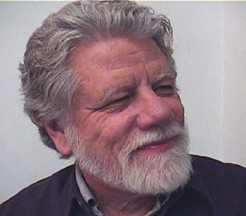 History according to Bob has just kicked off with a podcast and a vodcast about the Franks. Bob will continue, among the other subjects, to speak of the Franks and step by step go through their history which spans from the end of the Western Roman Empire to the Middle Ages in Europe. The prolific and enthusiastic Bob can be trusted to put in a thorough job and deliver his sources at the end of each edition - as usual.
History according to Bob has just kicked off with a podcast and a vodcast about the Franks. Bob will continue, among the other subjects, to speak of the Franks and step by step go through their history which spans from the end of the Western Roman Empire to the Middle Ages in Europe. The prolific and enthusiastic Bob can be trusted to put in a thorough job and deliver his sources at the end of each edition - as usual.What I find so fascinating about the Franks is that they bridge the Roman Era with the later Middle Ages, from where we arrive at the Renaissance and European history gets more familiar. They also are, as I see it, a bridge between tribal Europe and a Europe with states, first feudal then national. Sometimes I guess that successful tribal leaders among the Franks (and others) ultimately became the European nobility. Let's see what I will learn from Bob.




